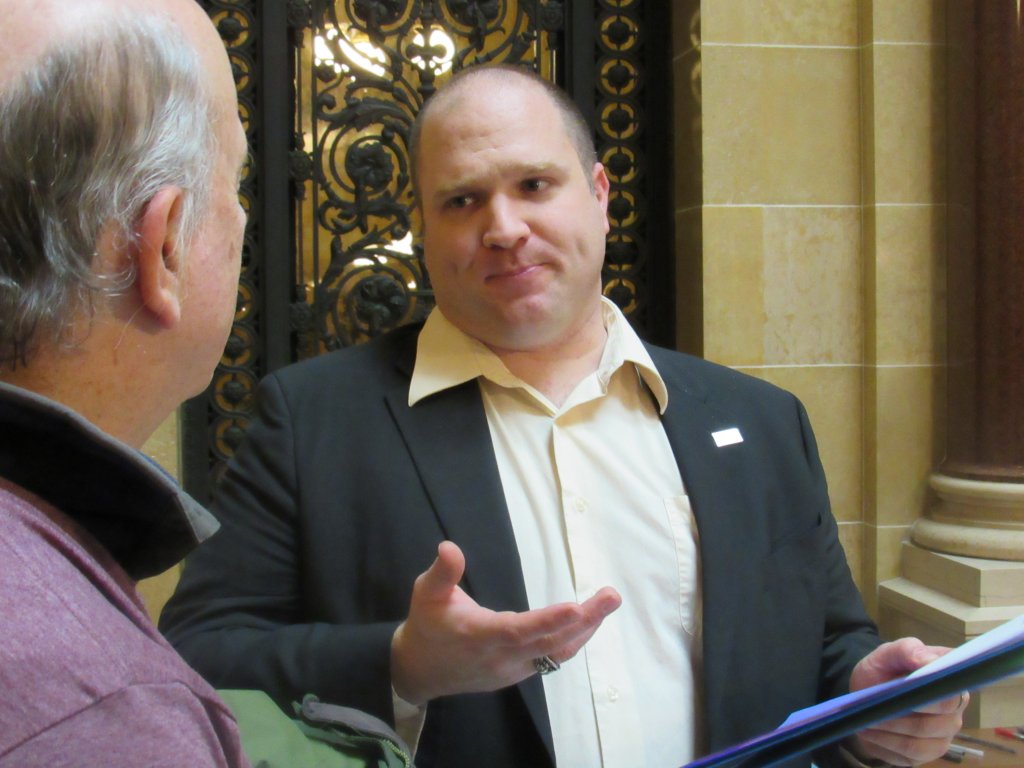Rep. Sortwell Targets Social Media Censorship
Three bills combatting online censorship shoot for bipartisan support.
When it comes to censorship on social media, Rep. Shae Sortwell (R-Two Rivers) hopes to find bipartisan ground to stand on. Recently, he introduced three bills which aim to both combat online censorship and provide new avenues for free-speech challenges. “Big tech has long been violating people’s free speech rights through deleting, censoring and shadow-banning because they disagree with what is posted or who is posting it,” said Sortwell. “We expect this kind of suppression in China, but it is disturbing that we have allowed it to occur in America, the Land of the Free.”
The bills cover three areas. One bill, LRB-2090, provides a civil cause for any Wisconsin resident against a social media company for alleged censorship. The bill would allow for Wisconsin’s Department of Justice, local district attorneys and residents to file suits against social media corporations for free speech violations. Then there’s LRB- 3211, which aims to protect the ability of journalistic outlets to publish materials on social media, and gives news outlets cause of action to fight social media censorship. Lastly, LRB-4301 implements a penalty for government officials for conduct in violation of First Amendment principles.
It’s a complicated dynamic to tackle, both practically and politically. Social media companies are extremely powerful. Some have suggested treating companies like Facebook and Twitter as monopolies which need to be broken up. Sortwell, while interested in the idea, does not see a practical way to achieve it.
He points to a growing debate or “disagreement as to what social media is. And the argument comes down to whether have the authority to restrict what people say. And I would say that as the years have gone on, and more and more people are involved in social media, the argument becomes a whole lot stronger … the idea that this is a public forum rather than just a private business. And therefore they, Facebook, Twitter, etc., no longer have the argument that they can simply decide what should and should not get seen by other people, besides the basic rules that are allowed in other public forums — like certain obscenity laws.”
The growing power and influence of big tech and social media giants is in the spotlight across the globe. In some countries Facebook essentially is the internet. Additionally, companies like Facebook or Twitter have bought up smaller companies like WhatsApp and Instagram.
Throughout the Trump Administration, Facebook and Twitter were embroiled in controversy. Shortly after Trump was elected, it was revealed that the big data firm Cambridge Analytica had attempted to exploit user data mined from social media giants to affect the outcome of the 2016 election in Trump’s favor. When unrest followed the shooting of Jacob Blake in Kenosha, armed right-wing groups openly organized themselves on social media pages. Despite a loud public outcry, the pages were not removed. On the second night of unrest, an armed teen who was a member of one of those social media groups shot two protesters dead and maimed another.
Sortwell hopes his Democratic colleagues see the value in his bills, and do not assume they will only apply to right-wing content. During the months of Black Lives Matter protests last year, protesters reported that their social media accounts were disrupted or hacked, possibly by police.
“Government should not be working with a social media platform to say, ‘We don’t think you should have this on here, we don’t like it, we think it’s not true,’ or whatever else,” Sortwell told Wisconsin Examiner. “Even if it’s not true, when you go down that line of government deciding what should and what shouldn’t be because it’s true or untrue, that is a very thin line.”
“It’s critical,” he says, “that we draw a hard line in the sand and say, ‘No, government officials should not be colluding with businesses to violate people’s civil rights.’”
He stresses that, “we all need to protect each other’s rights even when our side is in the majority. We look at the minority and say, ‘OK, I want your rights protected. Because you know what? Maybe in 10 years you’re going to be in the majority and I need to protect those rights so that you’ll respect my rights when things flip around.”
Sortwell is hopeful, he says, that his colleagues on both sides of the aisle will see the wisdom in that perspective.
Sortwell hopes social media bills have uniting principles was originally published by the Wisconsin Examiner.























Freedom to lie is GOP’s idea of protecting free speech